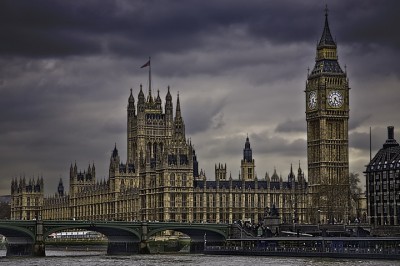Boris Johnson Suspends UK Parliament

It’s called prorogation, marking the end of a UK parliamentary session.
It’s usually for a week or two at most. Approved by Queen Elizabeth, PM Johnson is suspending it for five weeks — from either September 9 or 12 until October 14, beginning a few days after MPs return next month, the longest period since 1945.
It’s part of Johnson’s aim to ram through a no-Brexit deal — if he sticks to plan and no agreement is reached with the EU by end of October.
UK parliamentary affairs expert Ruth Fox called what’s going on an “affront to parliamentary democracy.”
Labor leader Jeremy Corbyn slammed the scheme, saying: “Suspending parliament is not acceptable. It is not on,” adding:
“What the prime minister is doing is a smash and grab on our democracy to force through a no deal.”
When MPs return to the Commons on September 3, top priority for Corbyn is attempting to pass “legislation to prevent what (Johnson) is doing.”
A vote of no confidence will follow “at some point,” he said. On Wednesday, hundreds of protesters gathered outside Westminster, chanting: “Stop the coup.”
Prorogation isn’t unusual. For an extended period at this time is very controversial, leaving little time for MPs to debate and vote on whether to leave the EU without a deal or reject the idea.
Legal action may try to block Johnson’s scheme. Scottish National Party (SNP) leader Nicola Sturgeon said
“(s)hutting down parliament in order to force through a no-deal Brexit is not democracy. It is dictatorship.”
Dozens of pro-Remain SNP MPs initiated legal action in Edinburgh’s Court of Cession to block a no-deal Brexit last month.
They now seek an “interim interdict” ruling to prevent parliament’s suspension until Brexit is debated on September 6 after MPs return from summer recess next Tuesday — a ruling expected this week.
As things now stand, MPs have little time left to approve or block a no-deal Brexit if an alternative with the EU remains unattainable.
Most MPs oppose Johnson’s scheme. Some accused him of creating a “constitutional crisis,” a “coup.”
Speaker of the House of Commons John Bercow called what’s going on “a constitutional outrage…to stop parliament (from) debating Brexit and performing its duty.”
MPs rejected Theresa May’s no-Brexit/Brexit deal three times, no alternative plan agreed on, a no-deal Brexit also rejected.
Is it coming on October 31? It’s possible but uncertain. It can be blocked legislatively or judicially.
The deadline could be extended further if Johnson requests it and Brussels agrees, though this seems unlikely.
To leave or not leave the EU has been unresolved since majority Brits voted for Brexit in June 2016. It remains uncertain how things will turn out.
*
Note to readers: please click the share buttons below. Forward this article to your email lists. Crosspost on your blog site, internet forums. etc.
Award-winning author Stephen Lendman lives in Chicago. He can be reached at [email protected]. He is a Research Associate of the Centre for Research on Globalization (CRG)
His new book as editor and contributor is titled “Flashpoint in Ukraine: US Drive for Hegemony Risks WW III.”
http://www.claritypress.com/LendmanIII.html
Visit his blog site at sjlendman.blogspot.com.

